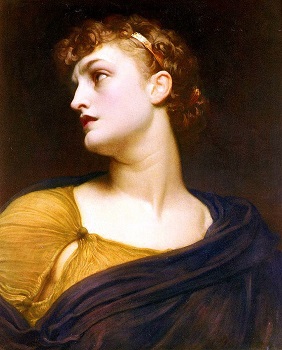Antigone is the third drama in the trilogy known as the Theban plays written by Sophocles and follows the stories of Oedipus Rex and Oedipus at Colonus.
Antigone’s brothers Polynices and Eteocles shared the throne of Thebes until they quarrelled and Eteocles banished his brother. Polynices left the kingdom, gathered an army and attacked the city of Thebes. Both brothers were killed in the battle. After these event Creon was ascended to the throne. He declared that Polynices must not be buried or mourned since he was a traitor. Despite knowing the king’s commands, Antigone buried his brother and defied Creon. Soldiers brought antigone before Creon where she admits her deeds and claimed that the divine law has priority over the civil laws. Has Creon’s command Antigone is buried alive. Tiresias, a blind wise man warned Creon and told him how he is disobeying the rules of gods. Creon had a change of heart but it was too late. Antigone had committed suicide and Haemon, her fiance and Creon’s son had also committed suicide. Haemon’s mother kills herself after learning about her son’s death.

Obviously, after reading the play the readers would know that the protagonist of the story is Antigone who defies the king and obeys the divine laws. But is Antigone the only protagonist of the play? Creon also has a central role and seems to have a tragic ending which is a significant feature of tragic heros. So can Creon be the protagonist of the play too?
To answer this question an important feature of Greek tragedies must be mentioned. The Greek tragedies, on the contrary to comedies. were written and performed for people with higher social status. Tragedy was considered the noblest form of drama so the characters would also be nobles. The Kings, queens, and princes who face a tragic end as the result of hamartia. An identifying characteristic of nobility was righteousness. In Antigone both Creon and Antigone are from the nobles and both are right in their own way. The conflict of this play is not between right and wrong but between two rights. While Creon obeys and supports the civic and worldly laws, Antigone follows the rules of Gods and supports the divine laws. Both of these characters obey and disobey some rules.
This way we can consider Antigone as a play with two protagonists and two tragic heroes. Creon’s tragic flaw is his disobedience of the divine laws and rejecting the burial of Polynices and his tragic end is the death of his son and wife. Antigone’s tragic flaw is her disobedience and stubbornness against the laws of the city and the king. Her woeful death is her tragic end.
Maryam Saadat



